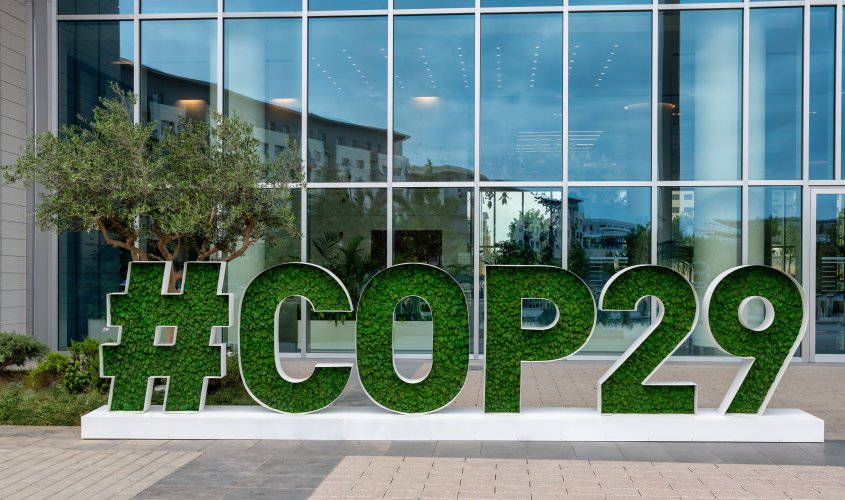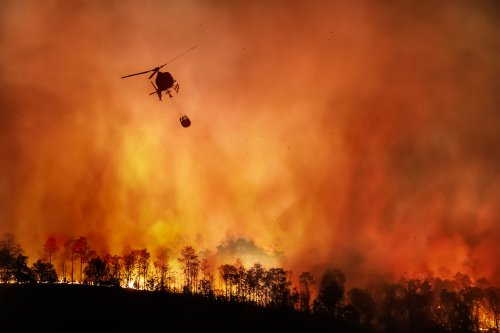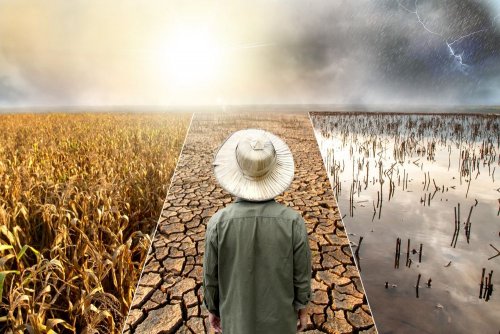The first week of the UN climate summit COP29 in Baku ended in disappointment, as negotiators failed to make any progress on the key issue of financing the energy transition and climate change adaptation in developing countries.
Euronews writes about the mood at the main international climate conference.
The main topic of the COP29 Conference of the Parties is the adoption of a new collective quantified goal on climate finance (NCQG – New Collective Quantified Goal on Climate Finance). Because of this, this year's climate summit has already been dubbed the “financial COP”.
The idea is that the $100 billion a year that several developed countries and the EU agreed in 2009 to mobilize by 2020 – a deadline they missed by two years – should be significantly increased from 2025.
Controversy arose around what
The EU has made it clear that it initially wants to expand the list of donor countries and include, in particular, China. It is worth recalling that in the context of the COP, China still considers itself a developing country. Therefore, halfway to the end of COP29, signs of tension appeared.
Diego Pacheco, Bolivia's chief negotiator, told the closing plenary of the first week on Saturday night that developing countries had received many "outlandish proposals" for more ambitious climate targets while there had been "no progress" on financing.
"There is no number, no ambition. Let's remember that this is a financial COP, and we expect developed countries to fulfill their obligations," Pacheco issued an ultimatum.
Euronews recalled that developing countries represent more than half of the world's population. Currently, this category includes Saudi Arabia and other oil states, as well as China and India. According to the EU and others, many of these countries should not be a beneficiary, but a donor.
The negotiators started with a nine-page draft of the NCQG agreement, which quickly grew to 35 pages, according to Euronews.
According to the latest estimates, developing countries will need trillions of dollars in investment over the next 10 years for climate change adaptation and energy transition.
What form will climate finance take?
Euronews observers note that whatever the overall "quantified goal" at NCQG is, it will not be a simple transfer of money in the form of direct grants from governments.
"As the numbers grow, the balance will tip towards the 'mobilization' of finance, rather than just 'provision'," they say.
The negotiators, in particular, are considering a set of measures aimed at reducing the cost of borrowing, reducing risks for private sector investments and strengthening the role of multilateral development banks (MDBs).
Eleonora Cogo, Senior Research Fellow in International Finance at the Italian climate change think tank ECCO, says that statement of the World Bank and other organizations on plans to jointly increase funding for climate programs for low- and middle-income countries was a "big step forward".
"The BDB has already made it clear that they can increase funding to $120 billion by 2030, so this is a very big step forward compared to the $75 billion we had," Kogo said in an interview with Euronews in Baku.
What is the current situation with the draft agreement on NCQG
At the beginning of the second week, the finalized 25-page draft of the NCQG agreement published on Saturday is on the table.
It still contains dozens of options and sub-options, as well as more than 400 alternative wording and gaps to be filled in. It is still unclear how much of the funds to achieve the main goal will be mobilized from the private sector, and how much will be provided, and who will do it. Developing countries want at least $1 trillion a year.
Discussions will move to the political level this week when ministers arrive in Baku for the final meeting.
Recently, EcoPolitic reported that economists at the COP29 Conference of the Parties in Baku called for at least $1 trillion a year for a decade for poorer countries to cope with climate change.





